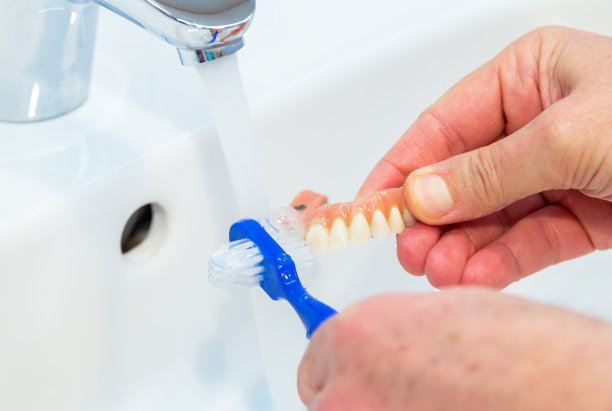Summary: Ensuring safety during root canal treatment is essential for achieving optimal patient outcomes. This article explores four key guidelines: effective patient assessment, maintaining a sterile environment, using advanced technology and equipment, and providing adequate post-operative care. Each aspect plays a vital role in minimizing risks associated with root canal procedures and enhancing the overall patient experience. By adhering to these essential guidelines, dental professionals can assure safety while delivering high-quality endodontic care.
1. Effective Patient Assessment Techniques

Before any dental procedure, particularly root canal treatment, effective patient assessment is crucial. This process begins with a thorough medical history review, where dentists must inquire about any existing health conditions, allergies, and previous dental issues. Understanding a patients medical background helps identify potential complications that may arise during treatment.
Furthermore, conducting a comprehensive clinical examination allows the dentist to evaluate the tooth in question. Diagnostic imaging, such as X-rays, is integral to visualize the extent of the infection and the anatomy of the root canals. This information is necessary for creating an accurate treatment plan tailored to the patients specific needs.
Lastly, establishing clear communication with the patient about the procedure, potential risks, and benefits enhances trust and ensures informed consent. By allowing patients to voice their concerns and ask questions, professionals can address any anxiety, promoting a positive treatment experience.
2. Maintaining a Sterile Environment
Creating and maintaining a sterile environment during root canal treatment is paramount in preventing infections. Dental professionals should adhere to strict infection control protocols, including proper hand hygiene, the use of personal protective equipment (PPE), and disinfecting the treatment area thoroughly before beginning any procedure.
Utilizing sterile instruments and materials is essential. This means ensuring that all tools are sanitized and that any products used during the procedure, such as gutta-percha and sealers, are packaged in sterile conditions. These practices significantly reduce the likelihood of introducing pathogens into the root canals and surrounding tissues.
In addition, it is important to minimize the number of personnel in the treatment room. Limiting the team to essential staff helps maintain focus on the sterile environment and reduces the risk of contamination. By prioritizing cleanliness and sterility, dental practitioners can significantly enhance patient safety during root canal treatment.
3. Utilizing Advanced Technology and Equipment
Incorporating advanced technology and equipment is a cornerstone of ensuring safety during root canal treatment. One major advancement is the use of digital imaging technologies, such as cone beam computed tomography (CBCT). This technology provides detailed 3D images of the tooth structure, allowing for better diagnosis and treatment planning.
Moreover, the implementation of rotary endodontic instruments has revolutionized root canal treatment. These instruments automate the cleaning and shaping of the root canals, leading to more efficient procedures and reducing the risk of iatrogenic damage to the tooth. The use of ultrasonic devices can also enhance visibility and cleaning effectiveness during root canal disinfection.
Finally, integrating patient monitoring systems can significantly improve safety during procedures. These systems track vital signs and provide real-time feedback to the dental team, allowing them to respond quickly to any changes in the patient’s condition. The combination of these technologies ultimately leads to improved outcomes and a safer treatment experience for patients.
4. Providing Adequate Post-Operative Care
Post-operative care is critical to patient safety and successful recovery following root canal treatment. After the procedure, patients should receive comprehensive instructions regarding oral hygiene, activity restrictions, and signs of complications. This awareness can empower patients to recognize issues early and seek assistance if necessary.
Additionally, scheduling follow-up appointments is essential to monitor healing and ensure that the tooth is responding well to treatment. Regular check-ups allow the dentist to evaluate the success of the procedure and address any lingering concerns that the patient might have after the treatment.
Finally, managing pain and discomfort post-operatively is crucial. Providing appropriate pain management strategies, including prescribing pain relief medications and recommending ice packs, ensures that patients have a comfortable recovery experience. Addressing pain effectively can alleviate anxiety about future dental treatments, fostering a more trusting relationship between patients and their dentists.
Summary:
In conclusion, adhering to essential guidelines during root canal treatment significantly enhances patient safety and outcomes. Effective patient assessments, maintaining a sterile environment, utilizing advanced technology, and providing adequate post-operative care are all critical steps that contribute to successful treatment experiences. With a commitment to these practices, dental professionals can ensure a high level of care that prioritizes patient well-being.
This article is compiled by Vickong Dental and the content is for reference only.
Vickong Dental
Vickong Dental is a large medical group established in Hong Kong in 2008 by professors from well-known medical universities in Guangdong and Hong Kong, as well as medical doctors from key national '985' universities (including Master's supervisors and senior professors). The chain of branches brings together expert dentists with PhDs and Master's degrees from Hong Kong and Mainland China, committed to providing high-quality dental treatment.
"Vickong Dental Practices the University Motto of 'Healing and Serving Society,' with a Stable Operation for Sixteen Years. It Has Been honored with Hong Kong Enterprise Leaders's Choice,' and is a Global Trusted Implant Center for the Nobel Implant System. Recommended by Hong Kong Metro Broadcast and Guangdong Television, it Serves Customers from Over Thirty Countries and Regions, Gaining the Trust and Favor of Citizens from the Guangdong-Hong Kong-Macau Greater Bay Area and Surrounding Cities.

Thousands of customers' unanimous praise
The most recognized and highly recommended dental service by customers in the Guangdong-Hong Kong-Macau Greater Bay Area
We Ensure You Receive Detailed Care and Attention Here
Hong Kong standards, Shenzhen prices, Your Trusted English-speaking dentists

Vickong Dental Medical-Grade Instrument Disinfection Process
Vickong Dental Medical-Grade Instrument Disinfection Process

Vickong Dental Chain: A Warm and Comfortable Environment for Treatment






Appointment Hours

Q&A
Why choose Vickong Dental?
Vickong Dental practices the university motto 「Medicine to Benefit Society」, with each branch bringing together highly qualified dentists with doctoral and master’s degrees from Hong Kong and the Mainland, and has maintained seventeen years of steady operation。Recipient of 「2024 Hong Kong Enterprise Leaders Brand」, 「2025 Hong Kong Enterprise Leaders Brand」, a Nobel Biocare Global Trusted Implant Center, and a brand recommended by Metro Radio Hong Kong and Guangdong TV。
To date, we have served customers from more than thirty countries and regions,earning exceptionally high word-of-mouth recognition and trusted recommendations from residents across the Guangdong-Hong Kong-Macao Greater Bay Area and surrounding cities
We have eight major branches in Zhuhai、Shenzhen,and a consultation and service assurance center in Hong Kong,so you can book a free consultation at any time for any questions,which is very reassuring.
If I do not accept the quotation after the CT scan, will I be charged??
No! As long as the actual treatment has not started, you will not be charged any fees.
Will there be any additional charges during the treatment process?
No, there won’t be any additional charges. Before treatment begins, we will clearly explain the treatment plan and its corresponding fees. Only after the patient agrees and signs the consent form will we proceed with the dental service.
Can I pay in Hong Kong dollars?
Yes. Vickong Dental accepts payment in Hong Kong dollars. The amount will be converted based on the exchange rate of the day, and the applicable rate will be clearly communicated to you in advance.
Can I reschedule my appointment at any time?
Yes. Please contact us via **WeChat** or **WhatsApp** as early as possible, providing your original appointment time and details, along with your preferred new date and time slot for rescheduling.













